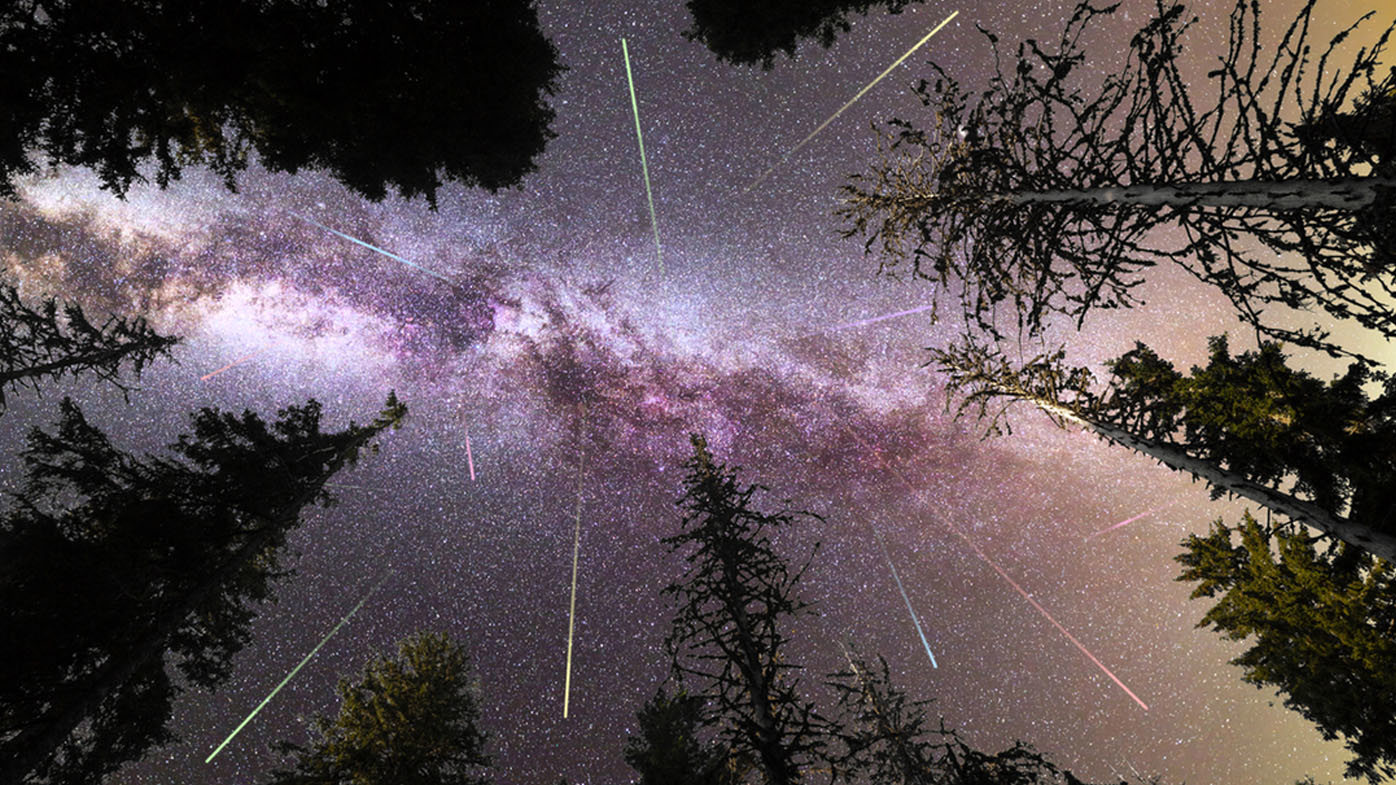
Star gazers in Australia are in for a winter treat over the coming days, with two meteor showers set to illuminate the night sky.
The Southern Delta Aquariid meteor shower peaks late this month and this year, it will coincide with a second smaller meteor shower, the Alpha Capricornids.
The Southern Delta Aquariids are the third most powerful meteor shower seen in Australia and will peak tomorrow.
READ MORE: Snow falls on multiple states as freezing cold sweeps Australia
How best to watch them in Australia?
For the best chance to spot meteors, head out tonight or tomorrow night, and away from city lights because the darker the sky, the more you will see.
You can start watching them from about 9pm, but the highest number of meteors are forecast from 11pm until 3am, astronomers say.
In a typical year, the shower is at its best for about 48 hours. During the peak, and with perfect conditions up to 20 to 25 meteors an hour can be seen.
The Alpha Capricornids is a much weaker shower than the Southern Delta Aquariids.
Even at their best, on tonight and tomorrow night, stargazers should expect to see only four or five meteors every hour.
READ MORE: ‘Portable bonds’ on the way for New South Wales renters
But because the Alpha Capricornids are slow, and often bright, they can produce spectacular fireballs across the wintry sky.
What is a meteor shower?
Multiple meteor showers occur annually and you don’t need special equipment to see them.
Most meteor showers originate from the debris of comets. The source of the Delta Aquariids is thought to be from the comet 96P/Machholz. The Alpha Capricornids originate from the comet 169P/NEAT.
When rocks from space enter Earth’s atmosphere, the resistance from the air makes them very hot.
This causes the air to glow around them and briefly leaves a fiery tail behind them — the end of a “shooting star.”
links to content on ABC
9News





